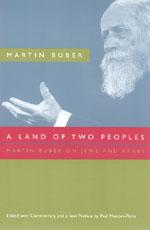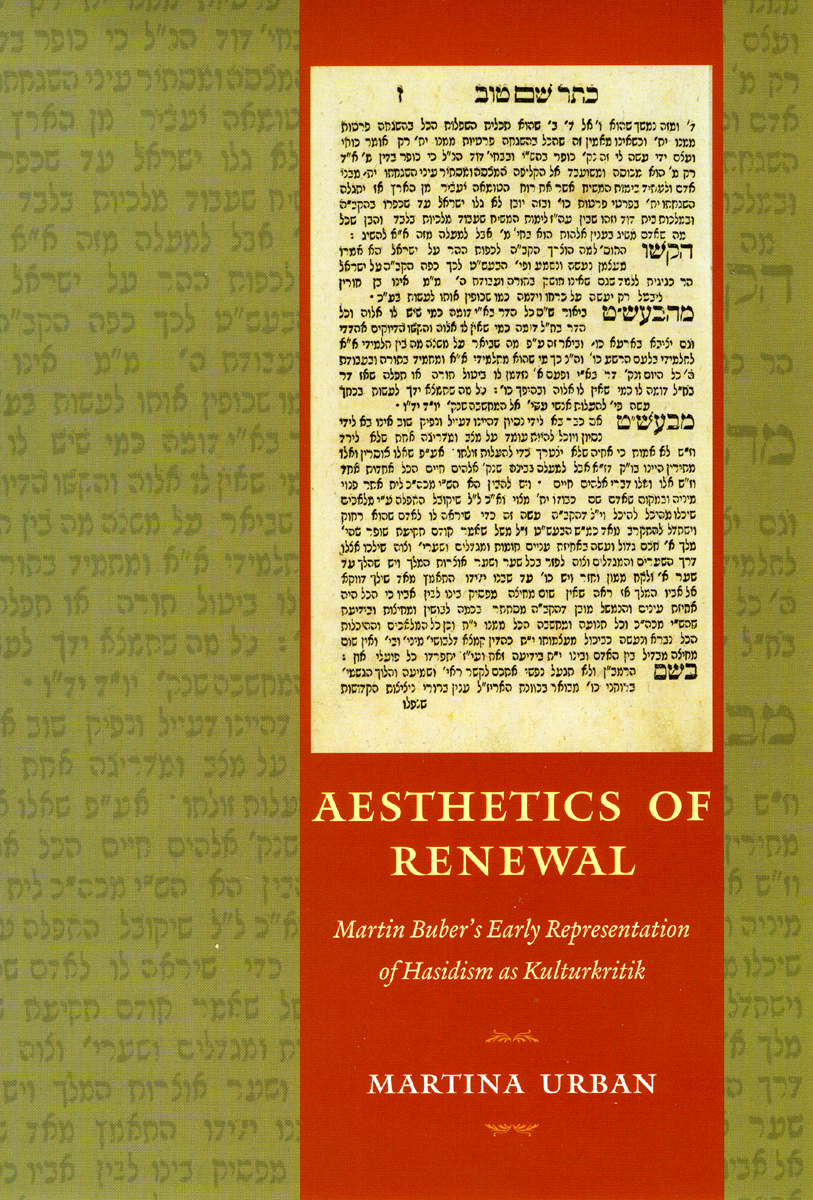Martin Buber at 131
February 8 marked the 131th anniversary of the birth of Martin Buber, theologian, philosopher, and political radical. Buber (1878–1965) was actively committed to a fundamental economic and political reconstruction of society as well as the pursuit of international peace. In his voluminous writings on Arab-Jewish relations in Palestine, Buber united his religious and philosophical teachings with his politics, which he felt were essential to a life of public dialogue and service to God.
Buber’s presences looms large over the Chicago Jewish studies list; in addition to Buber’s own writings in print, the Press also recently published a study analyzing his interpretation of Hasidic spirituality as a form of cultural criticism. In honor of this influential thinker’s life and work, we offer a Martin Buber reading list.
 A Land of Two Peoples: Martin Buber on Jews and Arabs
A Land of Two Peoples: Martin Buber on Jews and Arabs
Martin Buber, Edited with Commentary and a new Preface by Paul Mendes-Flohr
Collected in A Land of Two Peoples are the private and open letters, addresses, and essays in which Buber advocated binationalism as a solution to the conflict in the Middle East. A committed Zionist, Buber steadfastly articulated the moral necessity for reconciliation and accommodation between the Arabs and Jews. From the Balfour Declaration of November 1917 to his death in 1965, he campaigned passionately for a “one state solution.” With the Middle East embroiled in religious and ethnic chaos, A Land of Two Peoples remains as relevant today as it was when it was first published more than twenty years ago. This timely reprint, which includes a new preface by Paul Mendes-Flohr, offers context and depth to current affairs and will be welcomed by those interested in Middle Eastern studies and political theory.
 On Intersubjectivity and Cultural Creativity
On Intersubjectivity and Cultural Creativity
Martin Buber, Edited and with an Introduction by S. N. Eisenstadt
One of the foremost religious and social philosophers of the twentieth century, Buber also wrote extensively on sociological subjects, particularly as these affected his philosophical concerns. Collected here, these writings—touching on education, religion, the state, and charismatic leadership—offer essential insights into the human condition as it is expressed in culture and society.
Buber’s central focus in his sociological work is the relation between social interaction, or intersubjectivity, and the process of human creativity. Specifically, Buber seeks to define the nature and conditions of creativity, the conditions of authentic intersubjective social relations that nurture creativity in society and culture. He attempts to identify situations favorable to creativity that he believes exist to some extent in all cultures, though their fullest development occurs only rarely.
Buber considers the combination of open dialogue between human and human and a dialogue between man and God to be necessary for the crystallization of the common discourse that is essential for holding a free, just, and open society together.
 Aesthetics of Renewal: Martin Buber’s Early Representation of Hasidism as Kulturkritik
Aesthetics of Renewal: Martin Buber’s Early Representation of Hasidism as Kulturkritik
Martina Urban
Buber’s embrace of Hasidism at the start of the twentieth century was instrumental to the revival of this popular form of Jewish mysticism. Hoping to instigate a Jewish cultural and spiritual renaissance, he published a series of anthologies of Hasidic teachings written in German to introduce the tradition to a wide audience. In Aesthetics of Renewal, Martina Urban closely analyzes Buber’s writings and sources to explore his interpretation of Hasidic spirituality as a form of cultural criticism.
For Buber, Hasidic legends and teachings were not a static, canonical body of knowledge, but were dynamic and open to continuous reinterpretation. Urban argues that this representation of Hasidism was essential to the Zionist effort to restore a sense of unity across the Jewish diaspora as purely religious traditions weakened—and that Buber’s anthologies in turn played a vital part in the broad movement to use cultural memory as a means to reconstruct a collective identity for Jews. As Urban unravels the rich layers of Buber’s vision of Hasidism in this insightful book, he emerges as one of the preeminent thinkers on the place of religion in modern culture.